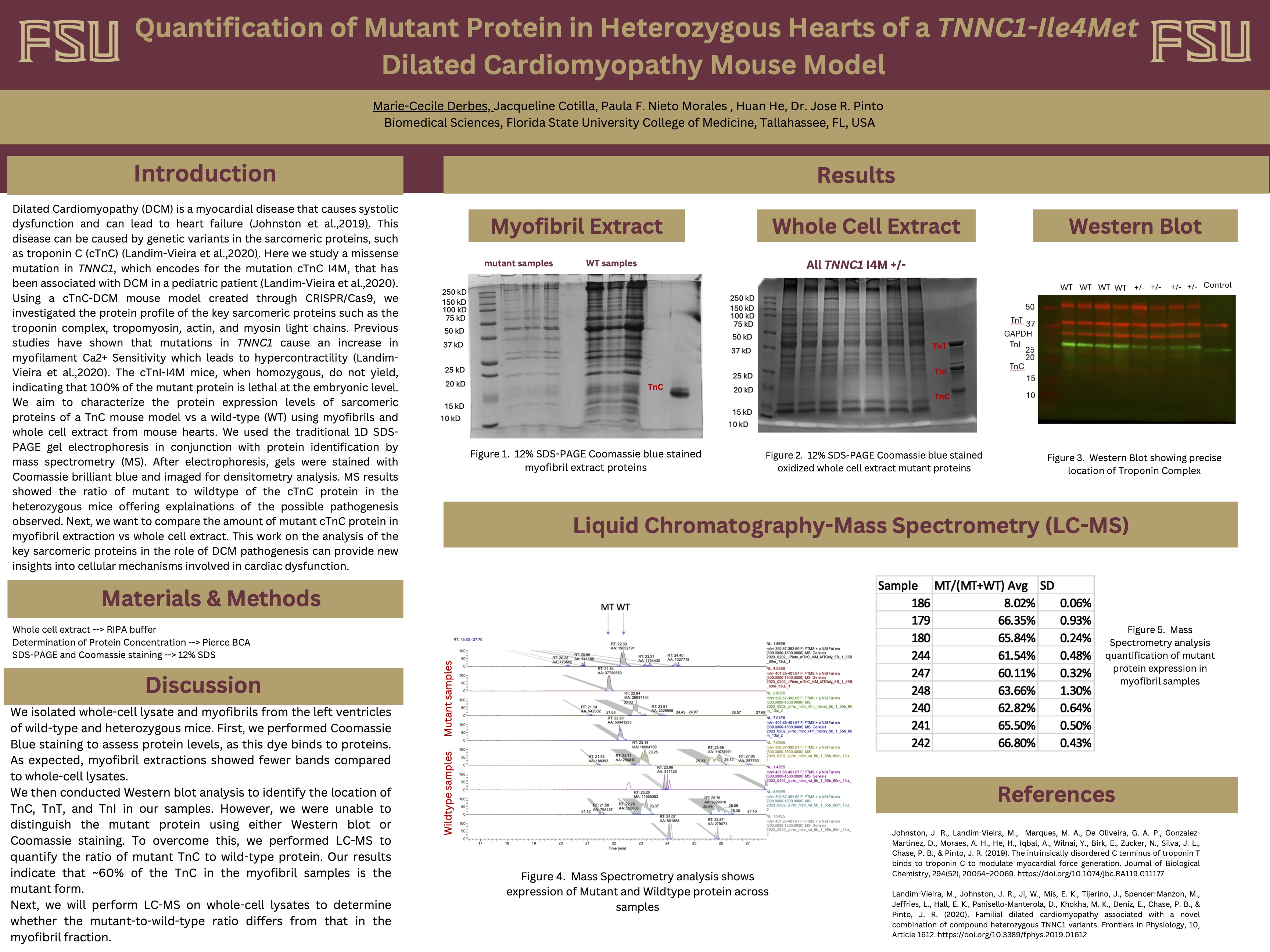Research Symposium
25th annual Undergraduate Research Symposium, April 1, 2025
Marie Derbes Poster Session 2: 10:45 am - 11:45 am/ Poster #198
BIO
My name is Marie and I am second year student from Melbourne Florida. I am currently a Biological Sciences major on the Pre Medical track. I have been an undergraduate research assistant in the Pinto Lab for the past year, and hope to gain more experience in research during the rest of my academic career.
Quantification of Mutant Protein in Heterozygous Hearts of a TNNC1-Ile4Met Dilated Cardiomyopathy Mouse Model
Authors: Marie Derbes, Paula Nieto-MoralesStudent Major: Biological Sciences
Mentor: Paula Nieto-Morales
Mentor's Department: Biomedical Sciences Mentor's College: College of Medicine Co-Presenters:
Abstract
Dilated Cardiomyopathy (DCM) is a myocardial disease that causes systolic dysfunction and can lead to heart failure. This disease can be caused by genetic variants in the sarcomeric proteins, such as troponin C (cTnC) . Here we study a missense mutation in TNNC1, which encodes for the mutation cTnC I4M, that has been associated with DCM in a pediatric patient. Using a cTnC-DCM mouse model created through CRISPR/Cas9, we investigated the protein profile of the key sarcomeric proteins such as the troponin complex, tropomyosin, actin, and myosin light chains. Previous studies have shown that mutations in TNNC1 cause an increase in myofilament Ca2+ Sensitivity which leads to hyper contractility. The cTnI-I4M mice, when homozygous, do not yield, indicating that 100% of the mutant protein is lethal at the embryonic level. We aim to characterize the protein expression levels of sarcomeric proteins of a TnC mouse model vs a wild-type (WT) using myofibrils and whole cell extract from mouse hearts. We used the traditional 1D SDS-PAGE gel electrophoresis in conjunction with protein identification by mass spectrometry (MS). After electrophoresis, gels were stained with Coomassie brilliant blue and imaged for densitometry analysis. MS results showed the ratio of mutant to wildtype of the cTnC protein in the heterozygous mice offering explanations of the possible pathogenesis observed. This work on the analysis of the key sarcomeric proteins in the role of DCM pathogenesis can provide new insights into cellular mechanisms involved in cardiac dysfunction.
Keywords: Cardiomyopathy, Protein quantification

